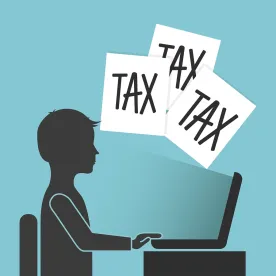Deep within the 429 page Tax Cuts and Jobs Act (the "Act") reside some proposed changes that would have significant ramifications for tax-exempt organizations. If the Act were to be enacted "as is" these changes would be effective immediately after the end of 2017 (except as otherwise described in the Act).
We expect the Act will change as it makes its way through the legislative process and we will be monitoring the Act closely. Below we highlight the Act provisions of greatest interest to exempt organizations.
Unrelated Business Income Tax
The Act has two provisions that increase the number of exempt organizations that would likely be subject to unrelated business income tax ("UBIT").
Section 5001: This provision provides that all entities exempt from income tax under section 501(a) would be subject to the UBIT rules notwithstanding such entities’ exemption under any other provision of the Internal Revenue Code (the "Code"). Under existing law, it was often unclear whether State and local entities (such as public pension plans) were exempt from the UBIT rules.
Section 5002: This provision further limits when research-related income may be exempt from UBIT. More specifically, this provision provides that an organization may exclude income derived from research from unrelated business taxable income only when the results of such fundamental research are freely made available to the public.
Excise Taxes
The Act also modifies certain provisions relating to private foundation excise taxes. Moreover, the Act imposes an excise tax on the investment income of specified private colleges and universities (traditionally the investment income excise tax was reserved for private foundations).
Section 5010: Currently, private foundations are subject to a 2% excise tax on net investment incomes (which can be reduced to 1% by making distributions equal to the average of their distributions from the previous five years plus 1%). This provision uniformly sets the excise tax rate on net investment income at 1.4% and repeals the rules providing for a reduction in the excise tax rate from 2% to 1%.
Section 5102: This provision applies solely to art museums claiming the status of a private operating foundation. Under this provision, such art museums would not be recognized as private operating foundations unless they are open to the public for at least 1,000 hours per year.
Section 5103: Perhaps the most controversial provision of the Act for exempt organizations, this provision subjects certain private colleges and universities to a 1.4% excise tax on their net investment income. The "full time" provision would be applicable to private colleges and universities that have at least 500 students and assets (other than those used directly in carrying out the institution’s educational purposes) valued at the close of the preceding tax year of at least $100,000 per full-time student. In the first day of markup on the Act, the amount per student was increased to $250,000. We are sure this particular provision will receive plenty of scrutiny based on the initial reaction of potentially affected educational institutions.
Section 5104: The current law imposes an excess business holding tax on private foundations owning more than a 20% interest in a for-profit business. This provision exempts private foundations from this tax if they own a for-profit business under the following conditions: (1) the foundation owns all of the for-profit business’ voting stock, (2) the private foundation acquired all of its interests in the for-profit business other than by purchasing it, (3) the for-profit business distributes all of its net operating income for any given tax year to the private foundation within 120 days of the close of that tax year, and (4) the for-profit business’ directors and executives are not substantial contributors to the private foundation nor make up a majority of the private foundation’s board of directors.
Requirements for Certain Exempt Organizations
The Act also modifies particular requirements for certain exempt organizations.
Section 5201: This provision modifies the prohibition on section 501(c)(3) entities participating in, or intervening in a political campaign as it relates to churches and other entities described under section 508(c)(1)(A) of the Code. Under this provision, entities described under section 508(c)(1)(A) would not fail to be treated as organized and operated exclusively for a religious purpose and would not be deemed to have violated the prohibition on participating in political campaigns because of the content of any homily, sermon, or teaching during religious services or gatherings where the speech is in the ordinary course of the organization’s business and its expenses are de minimus.
Section 5202: This provision requires section 501(c)(3) organizations sponsoring donor advised funds to annually disclose their policies on inactive donor advised funds as well as the average amount of grants made from donor advised funds.






 />i
/>i

